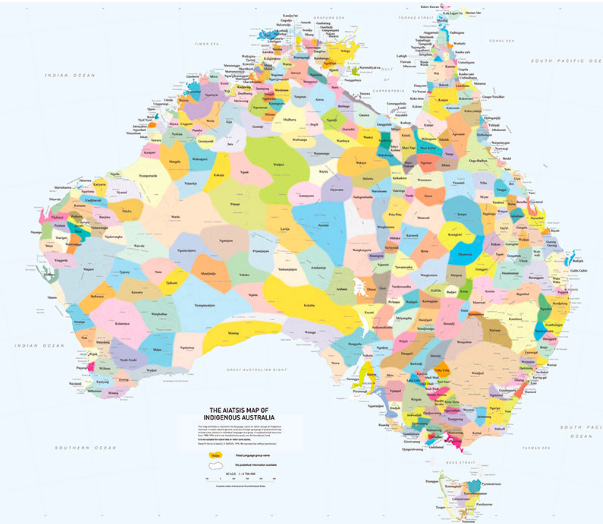Some very good news.
The High Court has upheld the Yindjibarndi people’s native title rights to their land.
Fortescue Metals Group applied to appeal these rights, and got a big ‘nope’ from the High Court.
The Yindjibarndi people live in what has been called Western Australia since invasion, but has been black country for 40 000 years. If you look it up on this great map, you’ll find them in blue on the far left of the continent, above the most eastern most bit.
You can read about the Yindjibarndi languages here, on this epic good map.
Languages are important, because you can trace who lived where by the languages they speak. A people will share some linguistic elements (and languages) with neighbouring people.
Language is culture, and the number of people speaking a language can tell you about that people’s history.
The Stolen Generations interrupted the transfer of language and culture between generations in many areas. Reconciliation Week is supposed to be (in part) about making amends for the Stolen Generation.
You cannot understand Australian history without reading the Bringing Them Home (1997) report.
Please note: this Report warrants a Content Warning for sexual violence, neglect, persons who are deceased, and so on. If you are an Australian, particularly if you are not a Aboriginal or Torres Strait islander Australian, you should try to read this Report.
Useful things to think about in regards to native title today:
- water rights (who owns them, who can buy or sell them);
- mining (who has access to land to mine);
- continuous occupation of land (and proof thereof, including rock paintings and burial grounds).
Note: native title is determined by the High Court. There are 7 High Court judges, 3 are women, none are Aboriginal or Torres Strait Islander. It’s worth noting that one of them, Justice Virginia Bell was a volunteer at the Redfern Legal Centre in the 70s, a centre that provided legal support for the 1978 Mardi Gras protesters (the first mardi gras march), for local Aboriginal community members, and other civil rights activists.
Read more about the Redfern Legal Centre here.

